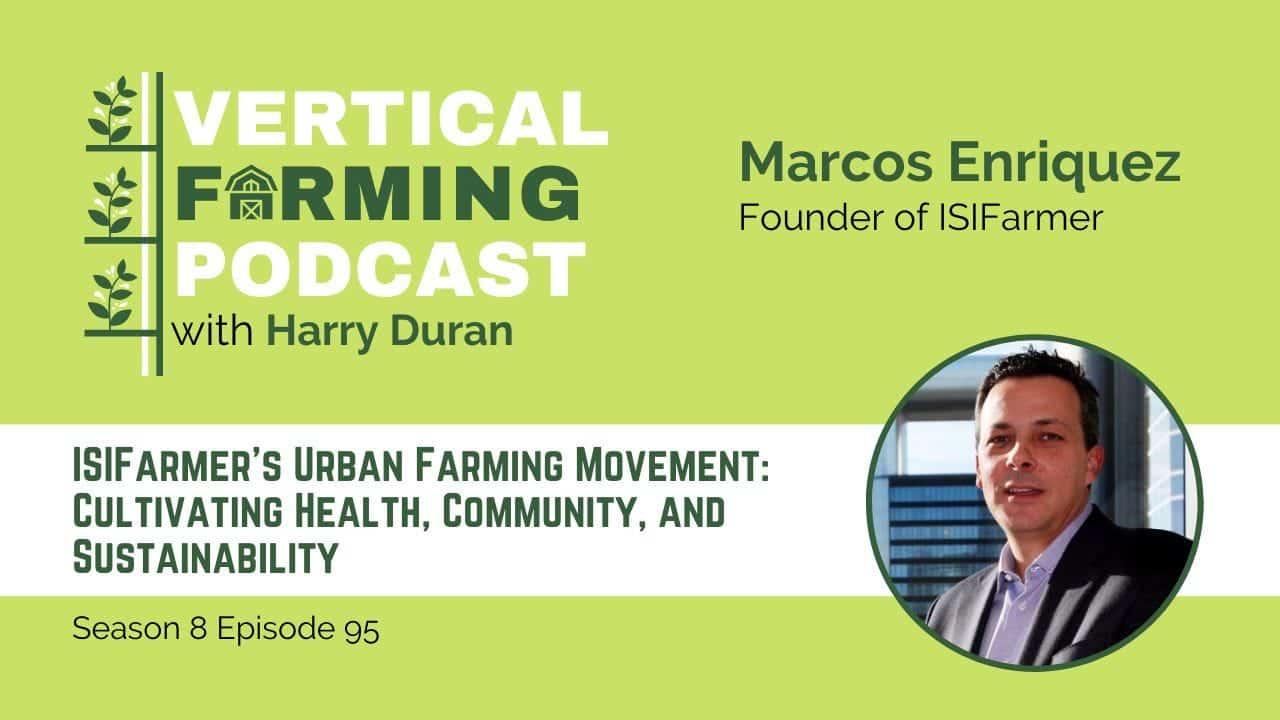Key Takeaways
- Marcos Enriquez outlines ISIFARMER’s plan to launch a co-working-style urban vertical farming hub in Madrid
- Company aims to bridge the gap between microgreens producers and high-end restaurants through a standardized “box” cultivation model
- Enriquez highlights the potential to scale the model across Spanish and global cities through controlled, modular farming systems
- Early adopters include distributors with existing relationships in the hospitality sector; most have no prior experience with vertical farming
- ISIFARMER is currently in early-stage development and seeking international investment and partnerships
Marcos Enriquez Explains ISIFARMER's Vision for Controlled Urban Farming
In a conversation on the Vertical Farming Podcast, Marcos Enriquez, founder of ISIFARMER, shared the motivations and strategy behind his urban vertical farming initiative based in Madrid. The platform is designed as a co-working space where local produce distributors can become urban farmers using modular growing systems housed in a centralized facility.
Enriquez described ISIFARMER as the culmination of years of entrepreneurial work centered around the sharing economy. His transition into agtech began with a blockchain-based traceability startup, which eventually led him to explore hydroponics and vertical farming. The concept behind ISIFARMER is to empower small-scale growers in urban environments while controlling key variables such as production methods, quality, and logistics.
Training and Infrastructure for First-Time Urban Farmers
While none of ISIFARMER’s initial farmer partners have prior experience in vertical farming, they are familiar with produce handling and distribution. Marcos Enriquez emphasized the importance of providing standardized equipment and operational protocols to help ensure consistency. The model relies on modular 2×2 meter controlled environment “boxes,” each capable of producing up to five tons of microgreens annually.
These modular units are designed for ease of use, drawing on a “Thermomix” analogy—where following a precise, repeatable process enables predictable results. ISIFARMER’s facility includes dedicated areas for production, packaging, and training, and is supported by solar energy and a shared electric delivery vehicle.
Microgreens as a Starting Point and Expansion Plans
To mitigate risk and ensure early-stage success, Marcos Enriquez and his team chose to begin with microgreens, which offer high margins and are in demand by premium restaurants. ISIFARMER's goal is to build long-term relationships between growers and local buyers, including chefs who may request specific varieties tailored to their menus.
The company is also in conversations with the cities of Madrid and Malaga about integrating vertical farming into urban development and training programs. Enriquez noted that the model could eventually support underserved populations through accessible urban farming employment opportunities.


